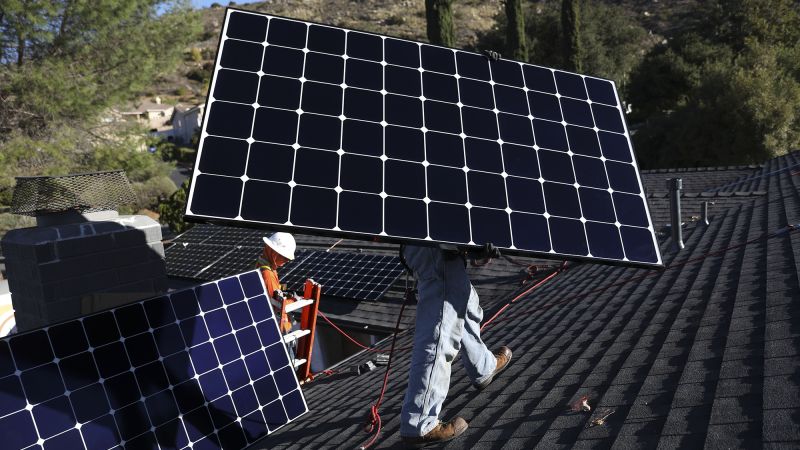
Challenges in Clean Energy Incentives for US Consumers
Opinion | 8/14/2025
Consumers in the United States are facing a dwindling opportunity to benefit from financial incentives for clean energy investments such as rooftop solar installations, electric vehicles, and energy-efficient appliances. Last month, clean energy provisions in the tax code were eliminated by Republicans, signaling a significant shift in the landscape of renewable energy support.
The removal of these incentives raises concerns among proponents of clean energy adoption, who argue that such measures have played a crucial role in promoting sustainable practices and reducing carbon footprints. This move comes at a critical juncture as the push for clean energy solutions intensifies globally to combat climate change and transition towards a more environmentally friendly future.
According to industry experts, the elimination of these tax incentives could potentially deter consumers from making eco-friendly choices due to the reduced financial returns associated with clean energy investments. The decision to revoke these benefits has sparked debates within the energy sector, with some highlighting the need for continued government support to drive the clean energy transition.
In response to the changes in the tax code, stakeholders in the clean energy industry are exploring alternative strategies to encourage the adoption of renewable technologies and ensure the viability of clean energy projects. While the removal of these incentives poses challenges for the clean energy sector, efforts are underway to find innovative solutions to sustain momentum in the shift towards a cleaner, more sustainable energy future.
As the deadline to avail of clean energy savings draws closer, consumers are urged to explore available options and consider the long-term environmental and financial benefits of investing in clean energy technologies. The evolving landscape of clean energy incentives underscores the importance of informed decision-making and proactive measures to support a cleaner and more sustainable energy ecosystem.


